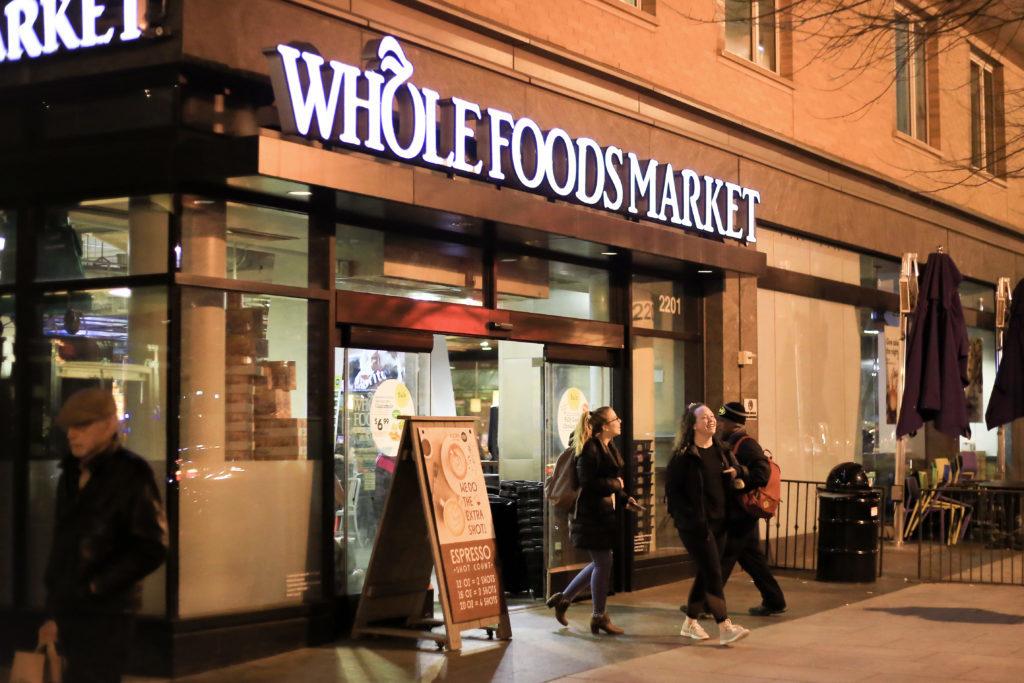Eight years after the District levied a tax on plastic bags, city officials say it’s having the desired effect.
In 2010, the District implemented a 5-cent tax on single-use paper and plastic bags to encourage consumers to switch from plastic to reusable bags. City officials say plastic bag usage has plummeted 50 to 70 percent since the fee took effect in 2009 and in 2017, more than three-quarters of city businesses complied with the law – the largest proportion so far.
The bag fee charges customers five cents every time they use a bag, with four cents directed to a special fund in the D.C. Department of Energy and Environment and 1 cent going to the charging store.
Lillian Power, an environmental protection specialist at DOEE – which is responsible for enforcing and implementing the bag fee – said 76 percent of the roughly 550 businesses inspected last year complied with the bag fee law.
The rule applies to any business that sells food or beverages in the city, except restaurants using paper bags for customers’ leftovers, she said.
Power said the law aims to change consumer behavior around plastic grocery bags, which are one of the four most prevalent types of trash, alongside food wrappers, bottles and cans.
“People don’t want to be around the Anacostia, or the Potomac or Rock Creek if they’re covered in plastic bags and trash,” she said, referring to major D.C. rivers and a park. “They’re kind of a blight on our communities. On top of all these environmental issues, they’re not great to look at so we want to keep them out.”
Volunteers have noticed fewer plastic bags at routine river clean-ups since the ban took effect, Power said.
The Alice Ferguson Foundation hosts yearly river clean-ups and volunteers hand-count each plastic bag at various clean-up spots to take inventory, Power said. The average number of plastic bags found at each cleanup fell from 548 bags – before the fee was approved – to 153 bags, according to an AFF report.
Julie Lawson, the director of the Office of the Clean City in the mayor’s office, said plastic bags constituted 50 percent of the trash collected in the Anacostia River in 2008, which sparked the “Skip The Bag, Save The River” campaign. Now, volunteer groups find 72 percent fewer plastic bags at clean-up spots in D.C. and Montgomery County in Maryland, she said.
“People from all over the country come here now and observe and they don’t see bags in the trees the way they do where they live or other places,” she said.
Lawson added that D.C. was one of the first cities in the country to institute this type of fee, but places like New York have legislation pending to discourage plastic bag use.
Foggy Bottom Association President Marina Streznewski said anecdotally, she hasn’t seen as many plastic bags floating around the neighborhood since the fee was implemented.
“If you need a bag and you pay for a bag, that 5 cents goes toward cleaning up the river,” she said. “If you don’t need a bag, then you don’t take a bag and you aren’t contributing to potentially having stuff in the river.”
Chris Weiss, the director of the D.C. Environmental Network, said that although data shows significant reductions in plastic bags, the fee hasn’t been nearly as successful as many have suggested.
“It is easy to see that the use of plastic bags is still very popular throughout the District,” he said.
Weiss said the area’s next step would be to pass an outright ban on plastic bags, which would have a greater impact on usage.
“We would also need to create another revenue stream to replace the bag fee monies and continue funding important river protection programs,” he said.
Emma Maschal, a research participant for the Oak Ridge Institute for Science and Education – a research branch of the U.S. Department of Energy that researches environmental contamination – said some companies oppose taxes and bans on plastic bags because they believe the consumer should have the right to use them if they choose. Taxes can create affordability concerns for some shoppers, she added.
“Certain members of the population have more ability to spend money on a tax and they also have more ability to invest in the longer term solution of reusable bags,” she said. “Taxes can progressively hurt certain populations if alternatives are not subsidized and supported to shift bag use.”





